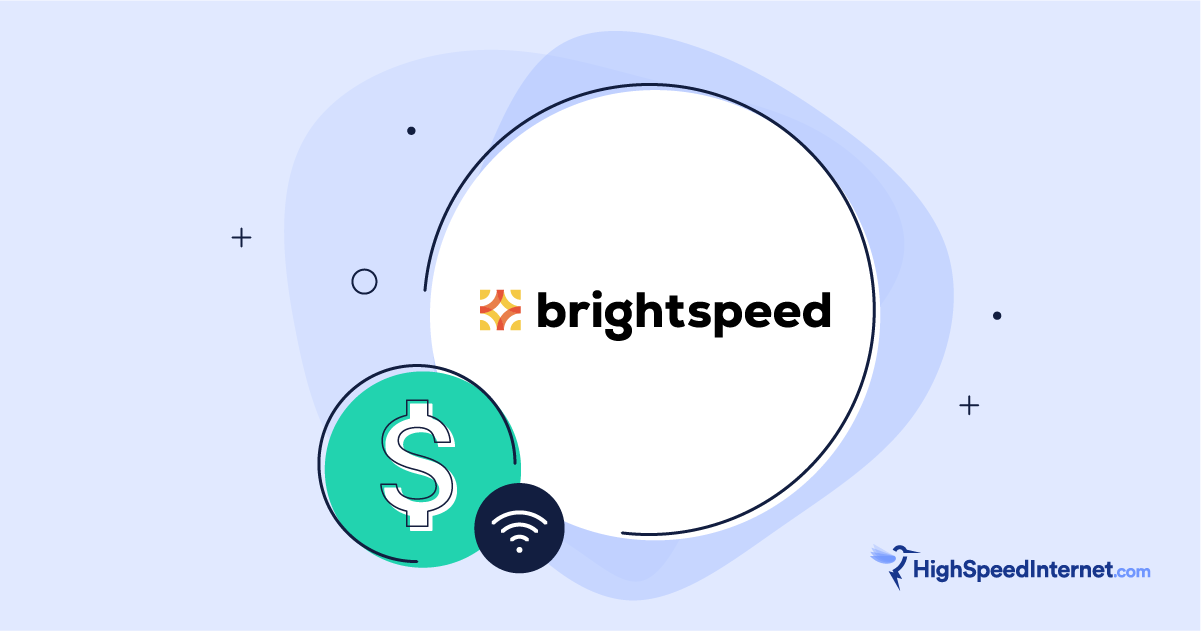How Much Does Web Hosting Cost?
Having your own website is easier than you might think
Aug 21, 2024 | Share
How-To, Web Hosting
For business owners and working professionals, having your own website is a necessity. It’s also a useful method of expression and communication. Creating and running a website can seem pretty daunting if you’ve never had one before. Fortunately, setting up a website doesn’t have to be a big investment if you know what you’re looking for.
If the cost of starting a website is your biggest concern, don’t worry. We’re going to walk you through the basics of web hosting and show you what options are out there.
What are you paying for?
When looking at the cost of creating and maintaining a website, there are generally three main things you’re paying for:
- Web hosting
- Domain name registration
- Web design tools
Web hosting is renting out space on a web server and paying for the internet connection to keep it online. This is usually your biggest monthly cost, though there are some ways to host certain content free of charge. For the technically savvy, you can also set up your own web server at home, though this requires a lot of up-front costs, some solid tech skills, and a good home internet connection.
Is your home internet connection fast enough to keep up with what you do online?
If not, enter your zip code below to see if there are better options available in your area.
Having a custom domain name makes your website much easier to find and generally makes it look more professional. Domain names are usually renewed annually, and most web hosting services will either help you register one or include a domain name in the total cost of their package.
The final major cost you’ll run into when setting up a website are the tools for building it. You don’t technically need any specialized software to make a website—you could code the whole thing in Notepad with a basic knowledge of HTML. Of course, if you want a modern, professional-looking website, even professional web designers are going to use some sort of design tools.
Many hosting companies provide simple tools that allow people with no previous experience with web design to create their whole site themselves. More experienced web developers can also buy plugins and other tools to add additional features to their website. There are also lots of free and open-source tools that you can use when creating your website.
Good customer support is vital
Another important factor when choosing a web host is customer support. If your website is hosted on a server somewhere in Nevada, there’s no way to fix it yourself if it goes down—you have to rely on your hosting provider’s support team to fix the problem for you. This is especially important if you’re running an online business and every minute down is money lost.
It’s hard to compare customer support between web hosting services unless you’ve had to deal with them directly, so look for customer reviews before choosing which one to go with and pay close attention to reviews that mention good or bad experiences with customer support.
Free web hosting options
If you’re making your first blog or just trying to share some information about your next big project, you might want to start with a free option. Free online platforms tend to be pretty limited in how much you can customize them, but they come in a wide enough variety that they can meet the needs of most people just getting started.
For writers and others looking to share their thoughts, opinions, or other information online, there are services like Blogger and Substack. For artists or other people who want to share more images than text, there are sites like Tumblr and Pillowfort. There are also website builders (which we’ll get to in a second) that have a “freemium” business model, which allow you to make a site for free, but charge for certain features.
Free website options severely limit the amount of customization you can do to your site. You might be able to change colors and backgrounds or choose the font, but you’re going to be limited in how much you can change the layout or structure of the site. This means that your site will look and feel like most others on the service, rather than uniquely yours.
Free options tend to seem less professional, since any teenager with internet access can make these kinds of sites. This isn’t a universal rule though. Plenty of high-profile journalists and authors have Substacks as their primary web presence. There are even professional artists and animators whose main website is just a Tumblr blog, but you should know your audience and what other people in your industry are doing to make sure that one of these options is right for you.
Most free sites also don’t give you the option to use a unique domain name, which makes it feel even less like your own unique website. They also don’t have much in the way of customer support, though there’s not a lot there that can actually break.
Free website platforms
| Service | Cost | Best for |
|---|---|---|
| Blogger | Free | Blogs |
| Medium | Free | Blogs |
| Substack | Free | Blogs, Newsletters, Podcasts |
| GitHub | Free | Software projects |
| Tumblr | Free | Art portfolios |
| Pillowfort | Free | Art portfolios |
| Google Sites | Free | Informational sites |
| Wix | Freemium | Small businesses |
| Weebly | Freemium | Small businesses |
| Webflow | Freemium | Small businesses |
Website builders
If you’re ready to invest in a more personalized website, but aren’t confident in your technical skills, don’t worry. There are plenty of hosting services that not only host your site, but give you all the tools you need to customize it all in one package. These are often simple drag-and-drop tools that don’t take any more technical skill than creating a PowerPoint presentation.
Since you’re paying for the custom tools these companies offer, they’re typically a bit more expensive than options where you have to build everything from scratch. There’s also some limitations on what you can do, since you’re not the one actually writing the underlying code, so choosing a provider that has the features you want is important.
That said, most of these website builders have small businesses and working professionals in mind, so most of them will have features for eCommerce, search engine optimization (SEO), and marketing campaigns. These features often cost extra, but it’s definitely cheaper than hiring a web developer with the skills to create those features on your own.
Popular website builders
| Service | Cost |
|---|---|
| Squarespace | $25.00/mo.–$72.00/mo. |
| Wix | Free–$159.00/mo. |
| Weebly | Free–$29.00/mo. |
| Webflow | Free–$49.00/mo. |
| Framer | Free–$30.00/mo. |
| Divhunt | Free–$66.00/mo. |
WordPress hosting (and other CMS)
WordPress deserves its own category. WordPress started in 2003 as free and open source blogging software and quickly grew to become one of the most popular content management systems (CMS) in the world. Today, 43.4% of all websites on the internet use WordPress. This includes everything from Wired to Forbes to your favorite internet comparison site.
Suffice it to say, if you want a website that looks professional, WordPress is more than capable of handling it.
WordPress itself is free, which means you can install it on a cloud-based server, on a web server in your office, or even on your laptop (if you just want to see how it works). It’s ubiquitous enough that many web hosting services have options to pre-install WordPress on your site, but there are also web hosting companies that just do WordPress sites.
WordPress gives you a lot of flexibility and customization options. There are also hundreds of plugins, both free and paid, that can add new features to your site or simplify the design process to make it more like a website builder.
And even for experienced web developers, WordPress is a solid starting point and an all-around good skill set to have. I got my first gigs as a WordPress developer in the early 2010s and after that, WordPress was always my first suggestion for clients who wanted a website. Almost 15 years later, WordPress is, if anything, an even more reliable choice.
There are also other CMS tools besides WordPress, such as Joomla and Drupal, but while they each had their pros and cons ten or twenty years ago, there’s not much that these other systems do that WordPress can’t do just as well, if not better. They’re perfectly capable for most websites, but unless you have a compelling reason to choose a different CMS, I’d suggest just going with WordPress.
Popular WordPress hosting
| Service | Cost |
|---|---|
| Bluehost | $11.99/mo. ($2.99/mo. starting price) |
| WordPress.com | $4.00/mo.–$45.00/mo. |
| Hostinger | $2.69/mo.–$3.99/mo. |
| DreamHost | $4.95/mo.–$19.95/mo. |
Cloud hosting, VPS, and other web hosting services
If you’re a web developer, or run a decent-sized company that employs web developers, you probably want a lot more control over your web servers. As you might expect from a setup where you have control over absolutely everything, your monthly cost could range from a few dollars to hundreds of thousands of dollars, depending on what kind of website you want to build.
These types of hosting fall into a couple of categories:
Dedicated hosting means that, when you sign up for web hosting, you get a whole computer all to yourself. It’ll still be a server on a rack in a data center somewhere, but the CPU, the memory, the storage, is all dedicated to just your site. You might pay for multiple servers, but there will never be anyone else’s stuff that you have to share resources with on those machines.
Shared hosting is when you do have multiple sites on one machine. When you sign up for your hosting plan, you will get a certain amount of disk space for your site, but other resources like memory and CPU time are shared across all the sites on the machine. You still have a lot of control over your space on that server, but you probably can’t reformat the hard drive or install a different operating system because other people are using that machine. It’s a much cheaper option than dedicated hosting, but does come with some limitations.
Virtual private servers (VPS) are kind of a middle ground between dedicated and shared hosting. With a VPS, a single physical server is partitioned into multiple virtual servers that mostly behave like separate machines. This allows you to have control over server management so you can change the operating system or control panel if you want. Of course, this also means you have to manage the server yourself, so this option requires some technical expertise.
Cloud hosting is similar to VPS, but instead of chopping one server into lots of small virtual servers, it takes lots of servers and chops them up into virtual servers. This is great for reliability since your website doesn’t go down if a single server goes down, because there are backups across a bunch of other servers. This also makes cloud hosted websites easy to scale and cope with fluctuating traffic.
The bottom line
Whether you’re promoting your business, building your personal brand, or just showing off your favorite hobby, a website allows you to share your ideas, passions, and accomplishments with the world. If you know what you’re looking for, you can find a hosting solution that works with your budget—from a free blog to document your backyard garden to a high-traffic cloud host to handle traffic for your growing business. And there’s no better time to start than now.
Author - Peter Christiansen
Peter Christiansen writes about telecom policy, communications infrastructure, satellite internet, and rural connectivity for HighSpeedInternet.com. Peter holds a PhD in communication from the University of Utah and has been working in tech for over 15 years as a computer programmer, game developer, filmmaker, and writer. His writing has been praised by outlets like Wired, Digital Humanities Now, and the New Statesman.
Editor - Jessica Brooksby
Jessica loves bringing her passion for the written word and her love of tech into one space at HighSpeedInternet.com. She works with the team’s writers to revise strong, user-focused content so every reader can find the tech that works for them. Jessica has a bachelor’s degree in English from Utah Valley University and seven years of creative and editorial experience. Outside of work, she spends her time gaming, reading, painting, and buying an excessive amount of Legend of Zelda merchandise.




